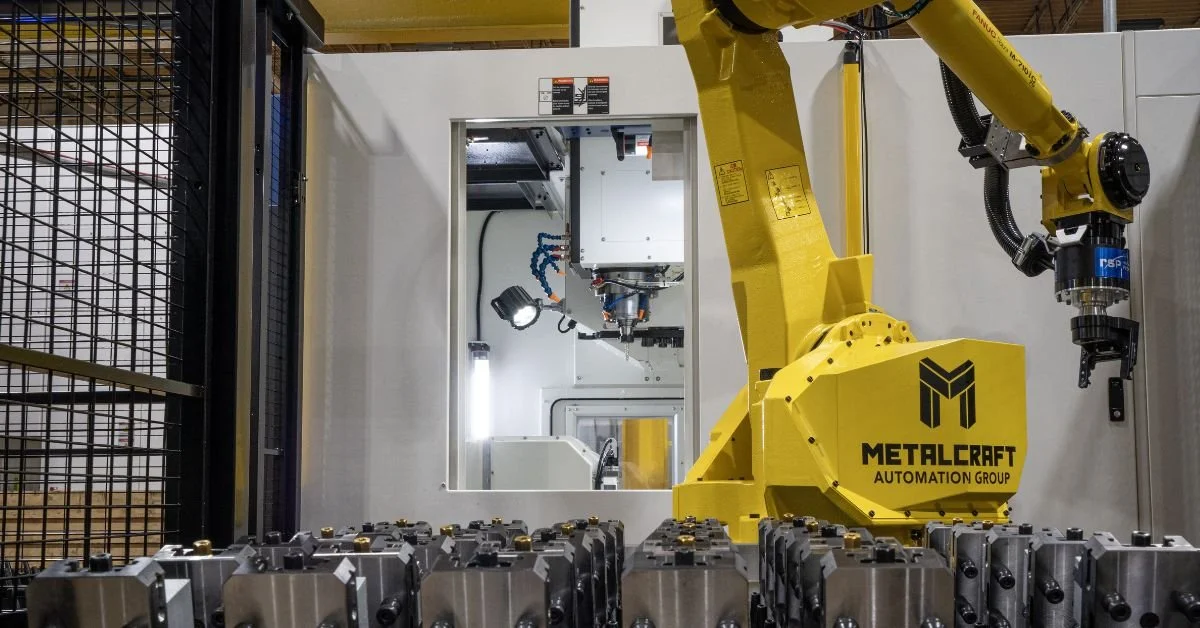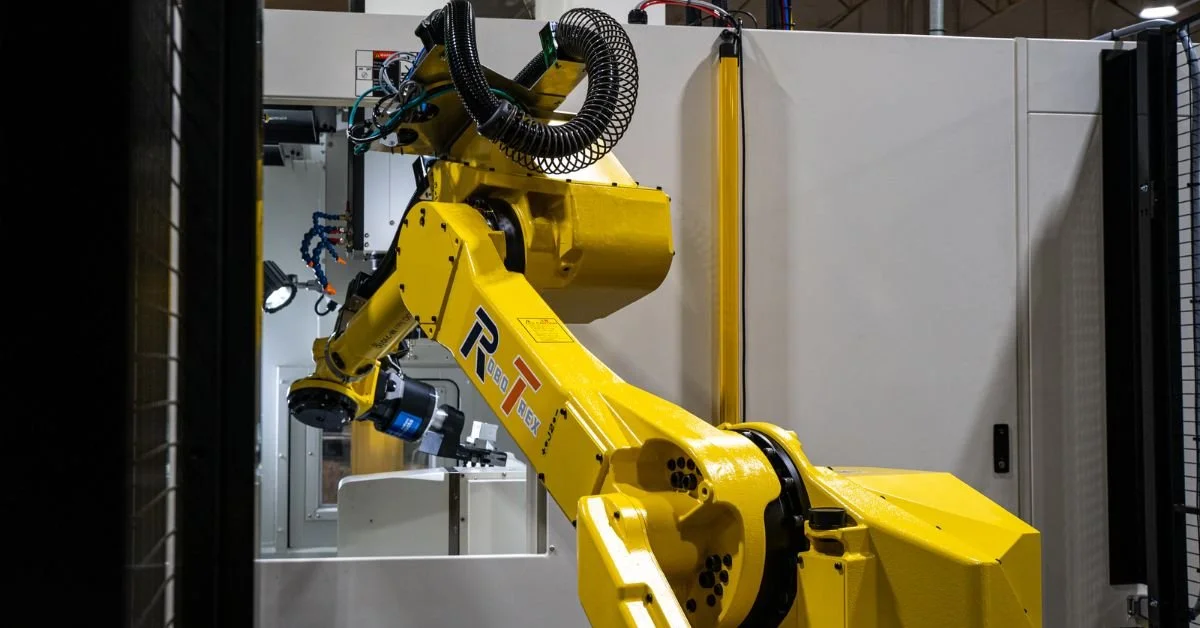Downtime is perhaps one of the biggest challenges to overcome in manufacturing, creating delays, wasted resources, and missed opportunities for growth. If your business relies on CNC machinery, minimizing downtime is essential to optimize efficiency and control expenses. Implementing computer numerical control, or CNC, automation reduces downtime costs through advanced processes and intelligent systems. By adopting these technologies, you position your operations for sustained productivity and profitability.
Speeds Up Production Cycles
Automation boosts the efficiency of CNC machines by completing tasks faster than humans can. These systems handle repetitive processes seamlessly, eliminating delays caused by human fatigue or distractions. With less idle time and optimized workflows, you’ll see an acceleration in production cycles, helping your team meet deadlines.
Enhances Accuracy and Reduces Errors
Human errors during manual operations can lead to costly rework, wasted materials, and production delays. Automated CNC systems eliminate risks by relying on programmed precision to deliver consistent results. Fewer risks ensure that your machines run smoothly with little to no interruptions or fixes, resulting in higher-quality output and fewer rejected products.
Reduces Setup Time
Setting up machines and performing changeovers manually can be time-consuming, eating into valuable production hours. Automated CNC machines streamline this process by using pre-programmed tools and intelligent software, which drastically reduces setup times.
With these advanced systems, you can switch between production runs more quickly and efficiently, minimizing downtime while maintaining precision. This ability to switch means your team can focus on delivering results quickly and meeting tight deadlines with less stress while staying flexible to adapt to changing production demands.
Operates 24/7
Human operators need breaks, rest, and recovery, but automated CNC systems can run continuously, 24/7, without experiencing fatigue, burnout, or performance issues. These machines maintain consistent quality and productivity around the clock, fully maximizing the potential of your equipment.
With continuous operation, production schedules become more reliable, and you can meet deadlines with confidence. Additionally, the ability to operate non-stop allows you to tackle high-demand periods or urgent projects without compromising efficiency.
Centralizes Machine Monitoring
CNC automation systems often include integrated, sophisticated monitoring software that provides real-time oversight of your production processes. This centralized monitoring capability gives you a complete view of performance metrics, helping you identify bottlenecks and inefficiencies.
With better visibility into machine activity, you can proactively make adjustments that optimize productivity and reduce downtime. The ability to track, analyze, and improve performance in one central location streamlines operations and empowers managers to make informed decisions for long-term success.
Prevents Maintenance Delays
Automated CNC systems have predictive maintenance tools that monitor machine health in real time. These tools assess the condition of your equipment and alert you to potential issues, such as wear and tear or mechanical failures, before they result in breakdowns. This proactive approach to maintenance allows you to address problems and avoid sudden production halts or expensive repairs.
Minimizes Material Waste
CNC automation is incredibly precise, utilizing materials by executing processes with incredible accuracy. Automated cutting, drilling, and machining reduce the risk of errors that lead to wasted materials, saving both resources and money. This level of precision not only ensures optimal usage of materials but also minimizes the need for production halts in order to correct mistakes.
Supports Flexible Manufacturing
Modern CNC machines can adapt to a variety of manufacturing needs, making them a valuable tool for businesses of all sizes. Whether you’re producing small, customized batches or scaling up for a high-volume production run, CNC automation can handle the transition seamlessly.
These machines can switch between tasks efficiently, without the long reconfiguration times required by manual systems. With this flexibility, you can respond to market demands, customer requests, or seasonal changes, giving your business an edge over competitors.
Improves Tool Longevity
With automated CNC systems, tools function under optimal conditions, including speeds, pressures, and temperatures. This reduces wear and tear, extends their lifespan, and prevents failures during operation. It also minimizes the frequency of replacements and reduces the risk of production stoppages caused by sudden tool breakdowns.
Reduces Workforce Strain
Repetitive, labor-intensive tasks can be physically and mentally draining for human operators, often leading to fatigue-related errors or workplace injuries. CNC automation takes over these demanding tasks, reducing the physical strain on your team and allowing them to focus on higher value tasks. By shifting the workload to machines, you create a safer and more efficient work environment while increasing employee satisfaction and productivity.
Facilitates Quick Troubleshooting
Advanced CNC automation systems come with diagnostic features that make identifying and resolving issues simple. When a problem arises, these systems can pinpoint the source and reduce time spent troubleshooting. This quick diagnosis allows your team to quickly implement solutions and minimize disruptions to your production schedule.
Enhances Workflow Efficiency
CNC automation simplifies the coordination of multiple machines and production processes, supporting smooth operation and minimizing interruptions. By integrating various stages of production, these systems reduce bottlenecks and lead to a more streamlined workflow. Improved coordination allows your production floor to operate like a well-oiled machine, maximizing productivity and sticking to delivery schedules.
Promotes Uniformity
One of the greatest advantages of CNC automation is its ability to deliver consistent, high-quality outputs. These systems follow pre-programmed instructions, eliminating the variability and errors introduced by human operators.
Automation ensures uniform quality across all production runs, reducing the need for rework or adjustments that can slow down production. Consistent quality enhances customer satisfaction and strengthens your reputation in the market.
Maximizes Resources
CNC automation allows business leaders to optimize resource allocation through automated scheduling, real-time monitoring, and optimized operations. These systems ensure your production floor operates at peak efficiency by reducing idle time across machines and human operators.
This efficient resource utilization minimizes waste, lowers operational costs, and maximizes your return on investment. With CNC automation, you can do more with less in the long run. CNC automation is a game-changer for manufacturers looking to reduce downtime costs and improve efficiency. By adopting these technologies, you unlock the potential for continuous production, enhanced precision, and proactive problem-solving.
When downtime is no longer a looming concern, you gain the freedom to focus on growing your business and delivering consistent value to your customers. Take the step towards CNC automation with Metalcraft Automation Group, and achieve the lasting success you’ve always wanted in your industry!



